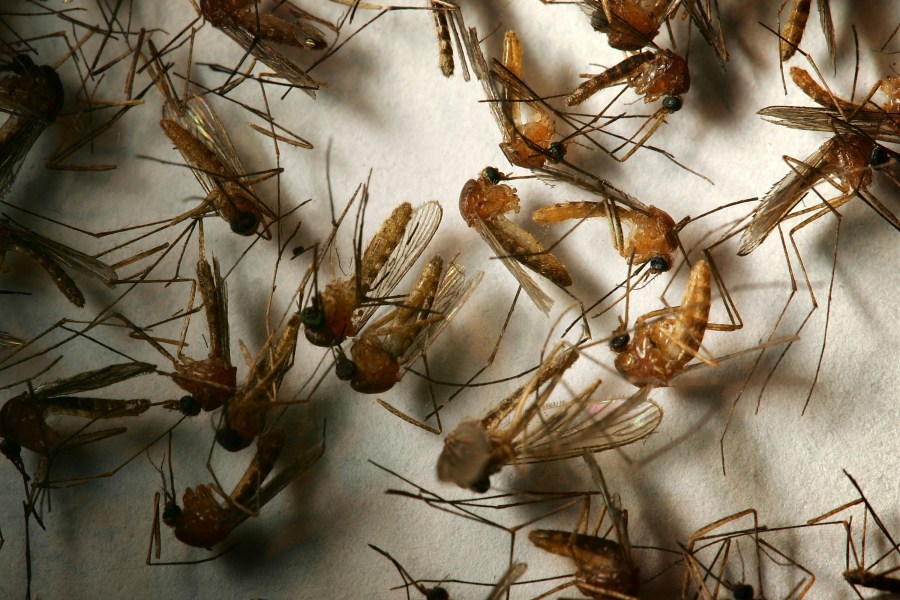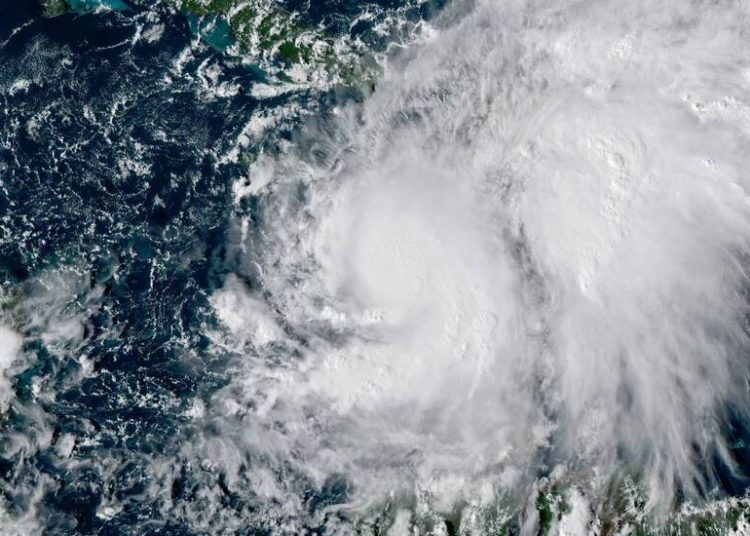The Los Angeles County Department of Public Health has confirmed the first local death linked to West Nile virus this year, officials announced Friday.
The patient, a resident of the San Fernando Valley, was hospitalized and died from a neurological illness caused by severe West Nile virus infection, the agency said.
“To the family and friends grieving the loss of a loved one due to West Nile virus, we extend our heartfelt condolences,” said Dr. Muntu Davis, Los Angeles County Health Officer. “This tragic loss reminds us how dangerous mosquito-borne diseases like West Nile virus and dengue can be. Protect yourself and your neighbors by using insect repellent, getting rid of standing water where mosquitoes breed, and keeping window and door screens in good repair.”
So far this year, 14 West Nile virus infections have been reported in L.A. County, excluding Pasadena and Long Beach, which have their own health departments. Half of the infections have been among residents of the San Fernando Valley, health officials said.
Earlier this season, officials confirmed the first four human cases in late summer — involving residents of the Antelope Valley, San Fernando Valley and central Los Angeles — and all were hospitalized but have since recovered. Pasadena reported its first local case earlier this month.
West Nile virus is the most common mosquito-borne disease in Los Angeles County and is detected every year, officials said. The virus circulates in nature among certain bird species and is transmitted to humans through the bites of infected mosquitoes, which are found throughout the county. While not all mosquitoes carry the virus, transmission typically increases during warm months between June and November, when mosquitoes are most active.
Most people infected with West Nile virus do not experience symptoms. About one in five develop a fever and other mild symptoms such as headache, body aches, joint pain, vomiting, diarrhea or rash. In rare cases—about one in 150 infections—the virus can cause severe illness, including high fever, stiff neck and muscle weakness. Older adults and those with underlying health conditions face a greater risk of serious complications, including meningitis (brain infection), encephalitis (swelling of the brain) and limb paralysis. There is no vaccine or specific treatment for the disease.
How to protect yourself
Public Health officials and local vector control agencies urge residents to take these precautions:
- Wear Mosquito Repellent: Mosquito repellents can prevent mosquito bites. EPA-registered repellents containing DEET, picaridin, IR3535, 2-undecanone, and oil of lemon eucalyptus are the longest lasting and most effective. They are available as sprays, wipes, and lotions. Consider wearing long-sleeved clothes and pants when outside.
- Keep mosquitoes out their homes: Make sure that doors and windows have tight-fitting screens to keep out mosquitoes. Repair or replace screens with tears or holes.
- Prevent mosquito breeding: Eliminate standing water where mosquitoes can lay eggs.
- Clear standing water in flowerpots, saucers, birdbaths and other outdoor containers. Empty items that hold water inside and outside your home once a week. Mosquito eggs only need a thimbleful of water to hatch.
- Cover water storage containers such as buckets and rain barrels. For containers with no lid, use wire mesh with holes smaller than an adult mosquito.
- Clean and maintain swimming pools, spas and drain water from pool covers.
- Throw away old items in your patio or yard that can hold water, e.g., old car tires and children’s toys.
- Call 2-1-1 or click here to find your local vector control agency to report persistent problems to your mosquito control district
“Detecting West Nile virus in our district is a reminder that this virus has been present in California — and right here in our community — for over 20 years,” said Brenna Bates-Grubb of the Antelope Valley Mosquito and Vector Control District. “It only takes a small amount of water for mosquitoes to breed.”
For more information, visit publichealth.lacounty.gov/acd/vectorwestnile.htm or call the Public Health InfoLine at 1-833-540-0473, open daily from 8 a.m. to 8 p.m.
The post First West Nile virus death of 2025 reported in Los Angeles County appeared first on KTLA.




